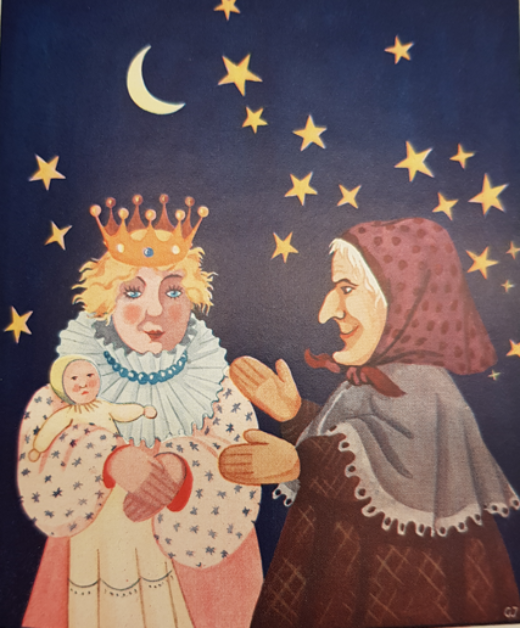
Printed
19 pages
Author(s)
Der Kaspar und die Sternenprinzessin
This play written in verse is the first of a collection of five texts for Kaspar, Seid ihr alle da? Ja! (Theaterverlag Albert Langen / George Müller) which stages traditional characters (such as Kaspar, the Crocodile or the Grandmother), but in original plots. Rooted in the supernatural, Kaspar und die Sternenprinzessin develops the theme of union between different populations. The Star Princess indeed rejects a Chinese suitor who returns to China to marry a Chinese woman, and instead asks for a man with blonde hair and blue eyes, according to the standards promoted by Nazi propaganda. But in the castle situated close to the Milky Way, where he lives with his new spouse, Kaspar does not like the food nor the strict rules imposed on him. Now a father, he goes through an identity crisis which started with the swapping of his hat for a crown. The princess that came from the sky also faces difficulties: she is homesick on Earth, and at the castle, it is Kasparl’s grandmother, who initially came to visit, who now reigns over court.
Union between members of different human communities is a source of sadness
Kaspar introduces himself and speaks to the children. The Star Princess (Sternenprinzessin) reproaches him for having made her wait. She wants to go back to the King, her father, and Kaspar has to follow her to their castle in the sky. A Policeman and a Peasant complain about the disorder and the noise caused by Kaspar. The Princess defends Kaspar, rejects the Chinese suitor that her father had offered her and asks to marry Kaspar instead. At the castle, where he now lives with his wife and their baby, Kaspar is unhappy because his favourite meals are not served there. When the grandmother arrives, everyone rejoices, as all the problems will be solved thanks to her.
Publications and translations
Thelemann, Dora. Der Kaspar und die Sternenprinzessin, in Seid ihr alle da? - Ja! Ein lustiges Kasparbuch, Berlin, Albert Langen, coll. « Die bunten Puppenspielbücher », 1936.